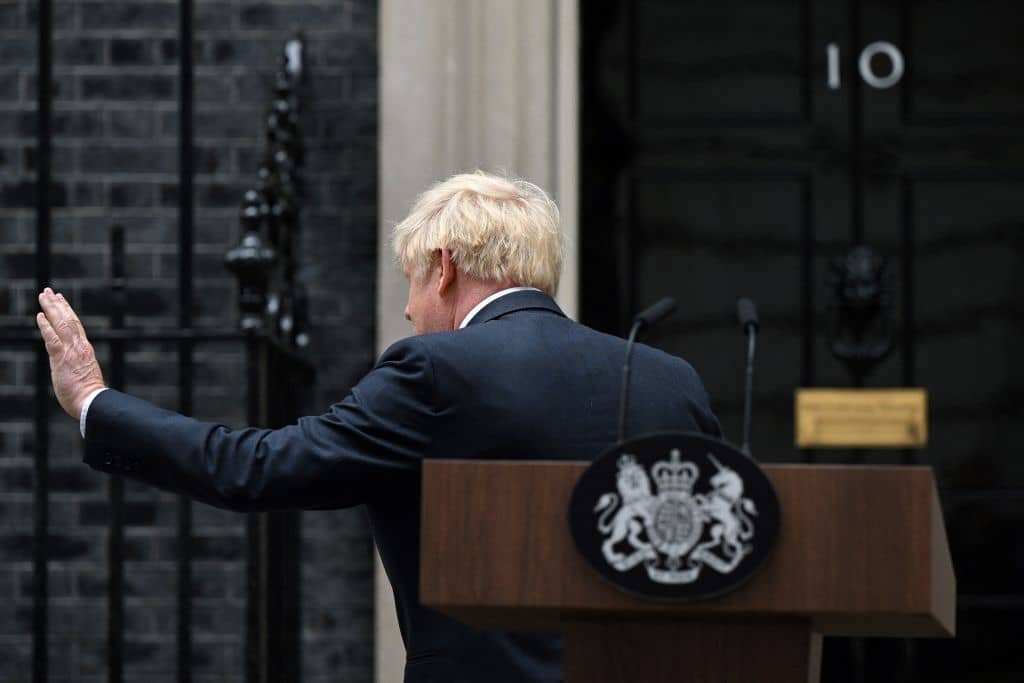Boris Johnson has just given a bitter resignation speech that makes clear he is not going anywhere until a new leader is in place. He has set up a betrayal narrative, pointedly thanking the British public – but not his own party – for his time in office and saying it would be ‘eccentric’ to change leader when the Conservative party is only a few points behind Labour in the polls.
There was no space to thank colleagues in government when he listed the work he was proud of and the projects he had hoped to see through to their conclusion. It was centred around him, not the collective effort, or indeed the Conservative party. Given that many MPs turned against him this week because they feared his position as Prime Minister presented an existential threat to the party itself, it will have underlined to many of them why he needs to go as quickly as possible.
The mood among Conservative MPs today is clearly that to have Johnson around for a moment longer than necessary is to damage the party further
It is still Johnson’s plan to stay on as leader until a successor is found, and the PM promised he would give that person ‘all the support I can’, which doesn’t sound very generous. The mood among Conservative MPs today is clearly that to have Johnson around for a moment longer than necessary is to damage the party further – and do the exact opposite of giving anyone support.
The Prime Minister talked about his ‘duty’ to stay on in government and claimed that this was the reason he had tried to stay in place for so long. Not many Conservative MPs seemed to agree with that line of reasoning before his speech. The way he talked about the party today will have made that even less likely.
As questions swirl around the time Johnson has left in No. 10, the leadership contest is ramping up. Suella Braverman was the first to declare, and already has the support of eccentric backbencher Desmond Swayne. Then there’s Steve Baker, who will be the European Research Group candidate, and Jake Berry, the Northern Research Group leader and ‘voice of the Red Wall’. These are not the favourites to win: most of the prominent candidates have some explaining to do about why they stayed for as long as they did in Johnson’s government.
Liz Truss, who is currently trying to fly back from Bali, never resigned or criticised the Prime Minister. Nadhim Zahawi insisted on being made Chancellor, then turned on Johnson in public 36 hours later. Ben Wallace stuck it out at the Ministry of Defence because he felt there was a duty to the nation to remain in post. The longstanding Johnson critics are planning to do all they can to make the early leadership interviews and hustings all about why these figures stayed in government when he was trashing the party.
Outsider candidates such as Tom Tugendhat don’t have this trouble, but will have to explain how they have anything like the requisite experience of government to pick up where Johnson left off on inflation, the war in Ukraine, the NHS backlog and the myriad other problems – let alone the longer-term reforms of ‘levelling up’ (or whatever the new leader calls it).
For now, there is still a debate that has not been settled at all by Johnson’s statement about how much longer he is going to be in Downing Street. As one formerly loyal MP put it to me: ‘He could have had a say in that had he gone at 2 p.m. yesterday. Now he can’t.’







Comments